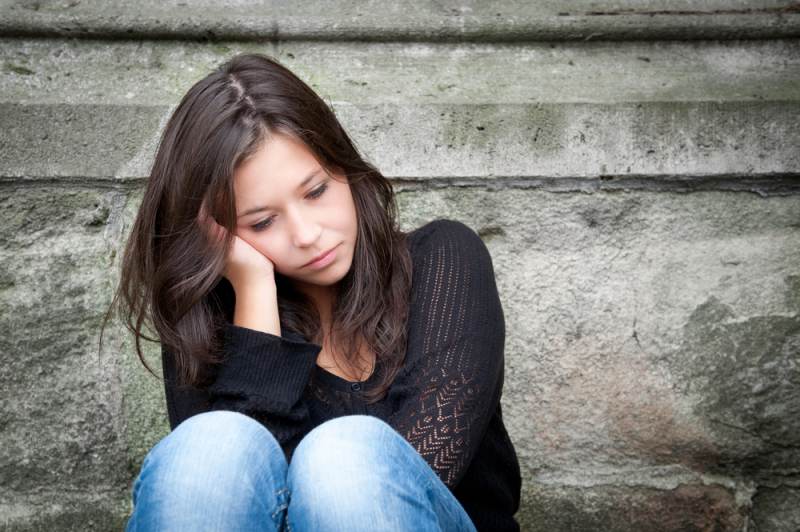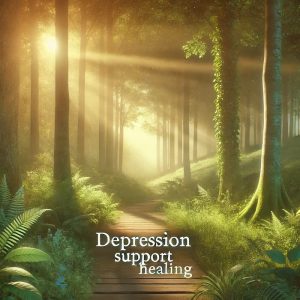
Many people, when they’re feeling down, will complain that they’re feeling depressed. Although rhetoric like this is common, it’s often unhelpful to invoke the word “depressed” if what you’re actually feeling is “sad.” The two feelings are often conflated, but they aren’t actually the same. It’s estimated that over 17 million adults in the U.S. deal with depression, but the fact remains that sadness and depression are markedly different experiences. It’s important to understand the differences, but it isn’t always easy to know which one you are dealing with.
Learn how to differentiate between sadness and depression, and if you’re struggling with the latter, find out where you can get help. Psychiatric treatment in Nashville can provide solutions for depression, anxiety, and many other mental health concerns.
1. Sadness Can Be Overcome, Depression Is Persistent
When you’re feeling down, does a favorite movie cheer you up? Does time spent with friends and family lift your spirits? For a person who’s feeling sad, the answer is likely yes. Indulging in the things you love will almost certainly alleviate your feelings of sadness. For a person who’s depressed, though, the experiences that usually bring joy may not hold the same appeal they once did.
This illustrates another important difference between sadness and depression — sadness can usually be overcome with time and effort, whereas depression is often resistant to these efforts. There are certain activities that have been shown to mitigate the symptoms of depression. According to Harvard, regularly engaging in physical exercise, for example, has yielded results that rival that of antidepressants for some people. Of course, solutions like this are often a catch-22 for anybody in the midst of a depressive episode. Exercise may certainly help, but your depression may prevent you from trying it.
This is because sadness and depression are fundamentally different experiences. Sadness is part of depression, but depression can encompass many other symptoms, too, including the following:
- Weight fluctuations
- Hopelessness
- Low libido
- Fatigue and low energy
- Loss of interest in hobbies
- Chronic pain
- Irritability
Sadness in and of itself does not constitute depression. When it is accompanied by additional symptoms such as these, though, it’s likely that you’re dealing with depression.
2. Sadness Is Short-Term, Depression Is Long-Term
One of the most telling signs that you’re dealing with depression — and not just sadness — is the length of time you experience symptoms. According to experts, a mental health clinician in Nashville will likely require at least two weeks of persistent symptoms in order to diagnose depression. Episodes that are shorter than this probably indicate a bout of sadness rather than a serious depressive state.
For most people experiencing depression, though, symptoms last much longer than two weeks. Many people who are diagnosed with major depressive disorder first began experiencing symptoms as an adolescent — and in some cases, even as a child. By the time they receive a formal diagnosis and get treatment as an adult, many people have been struggling for years.
For those who have been living with depression long-term, it is often punctuated by intermittent periods of intense sadness. A period like this is called a “depressive episode,” and it’s estimated that the average depressive episode lasts six to eight months. If you have been feeling sad, despondent, or uninterested in your usual activities — and you’ve endured several months without improvement — it’s possible that you’re dealing with depression.
3. Sadness Is Circumstantial, Depression Can Be Random
Another important point of differentiation between sadness and depression is the context surrounding the experience. Sadness is generally prompted by a specific event — for example, you may feel sad after a friend has hurt your feelings or you’ve lost out on a job opportunity. Depression, on the other hand, may emerge at any time — seemingly apropos of nothing.
In fact, many people who live with depression may experience a depressive episode when everything appears to be fine. Your life may include a great job, friends, and family who love you, and activities you enjoy. All of a sudden, though — when a depressive episode occurs — the enjoyment can drain from those activities, and you may stop looking forward to seeing friends and family. There is no clear cause of these feelings, but they can start to feel suffocating.
If you’re unsure whether you’re dealing with depression in Nashville or simply sadness, investigate your feelings and try to find the source. Did a specific event prompt you to feel this way? Can you identify a trigger that might be causing your experience? If the answer is yes — and your feelings have not lasted for an extended period — it’s possible that you are dealing with sadness and that it will soon pass. Conversely, if you can’t identify the cause of your feelings — and you have been battling them for a while — it may be time to seek treatment for depression.
4. Sadness Is Part of Life, Depression Consumes Your Life
Feelings of sadness are a natural response to many experiences in life. As sadness sets in, you might cry, feel anxious, isolate yourself, or feel despondent — all of which are normal. Even if the feelings feel overwhelming, though, sadness is only part of your life. You should still be able to function, feed yourself, go to work, and interact with people. If this isn’t the case, it may be a cause for concern.
Sadness is a part of every person’s life, but depression can consume your life. If you are feeling down, but it does not thwart you from completing daily tasks and activities, it’s likely that you’re just dealing with a period of sadness. If you are dealing with depression, though, you may struggle to manage daily tasks such as the following:
- Making food and eating
- Showering
- Tending to hygiene
- Communicating with loved ones
- Going to work
- Getting out of bed
This difference is an important distinction. When thoughts of despair plague you on a daily basis — to the point that they impair your ability to function — this is a sign that it’s time to seek psychiatric care in Nashville or Clarksville.
5. Sadness is Survivable, Depression Is Life-Threatening
Perhaps the most important distinction between sadness and depression is the impact each has on a person’s will to live. Feelings of sadness may be intense, but they shouldn’t prompt you to question whether life is worth living. Ultimately, sadness can be survived and overcome, but depression is a life-threatening condition.
According to the Centers for Disease Control, over 45,000 people with depression die by suicide every year in the U.S. alone. Indeed, suicidal ideation is a major risk factor for depression, and it’s one of the most common symptoms. If you are dealing with suicidal ideation, there are a few important steps you can take to stay safe:
- Call the National Suicide Prevention Lifeline at (800) 273-8255
- Text the Crisis Text Line by texting HOME to 741741
- Chat with the National Suicide Prevention Lifeline’s Lifeline Chat online
- Seek treatment at your local Emergency Room facility
- Reach out to a loved one who you trust
If you are not in immediate danger, but you have had suicidal thoughts, it’s imperative that you seek treatment as soon as possible from a mental health professional in Clarksville or Nashville. A psychiatric provider can provide you with additional resources and help you develop a treatment plan to alleviate the symptoms of depression — including suicidal ideation.
6. Sadness Can Heal Itself, Depression Needs Treatment
The importance of treatment should not be understated when dealing with depression. Sadness is a serious issue, but unlike depression, it does not necessarily need professional treatment. As the saying goes, “time heals all wounds” — and indeed, the intensity of sadness will typically taper off over time and eventually become a memory.
Depression, however, often requires professional treatment in order to overcome. Talking to a mental health practitioner in Nashville or Clarksville can help you find the right treatment option. This may include medication, talk therapy, or lifestyle changes. Medications such as antidepressants are an effective way to combat depressive symptoms and regain control of your life.
If you’re wondering where to get mental health treatment in Tennessee, you should look for a provider who can accommodate your schedule and offer flexible appointment options. Finding the right psychiatric provider in Tennessee might seem difficult, but there are providers available who can provide you with the treatment you need to overcome depression.
Overcome Depression in Nashville and Throughout Tennessee
Although sadness and depression have much in common, the two experiences are very different — and the latter may necessitate professional treatment. Rose Behavioral Health provides care and services to clients who struggle with anxiety, depression, OCD, PTSD, and other mental disorders.. We are here to help and support those who need it most.s. We offer telehealth appointments that are completely virtual, and we have flexible appointment availability, too. This means you never have to worry about struggling to fit an appointment into your tight schedule or taking time off work just to seek treatment. For more information, reach out to one of our psychiatric providers in Nashville, Clarksville, and throughout Tennessee.








